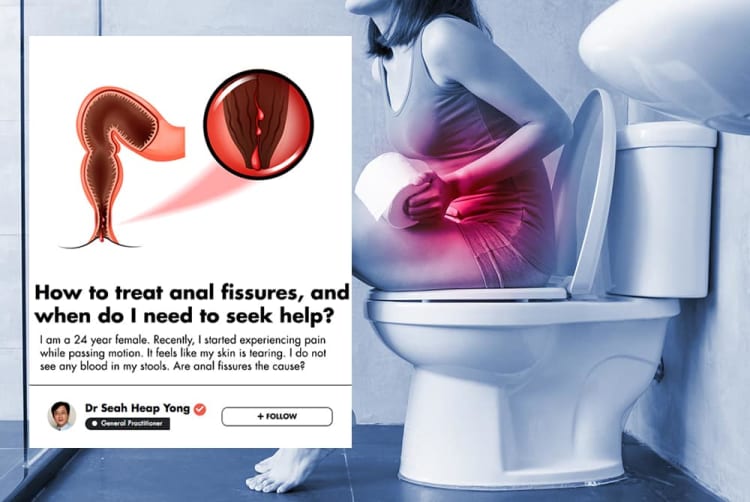Anal fissures are anal mucosal tears which do not heal well due to relatively higher anal pressure of the surrounding muscles otherwise known as anal sphincter.
These fissures mostly come about because of local trauma. Occasionally, they are one of the manifestations of an underlying chronic inflammatory disease of the intestines known as Crohn's disease.
It can be frustrating that an anal fissure heals initially only to recur later when the underlying problem is not addressed. Common problems which lead to anal fissures are constipation and hard stools. As such, ensuring adequate dietary fiber and water intake is the first step you should take.
At times, stools softeners may also be required. Minimising trauma to the anus by gentle washing rather than vigorous cleaning with toilet paper after bowel opening may also help.
If the above measures are still not effective, you will need treatment from your doctor to relief the anal pressure and to exclude other conditions such as Crohn's disease. Treatment can range from local application therapy to oral medicine depending on the severity of the condition. In recalcitrant cases, surgical splitting of the anal muscles may be required.
Dr Quan




